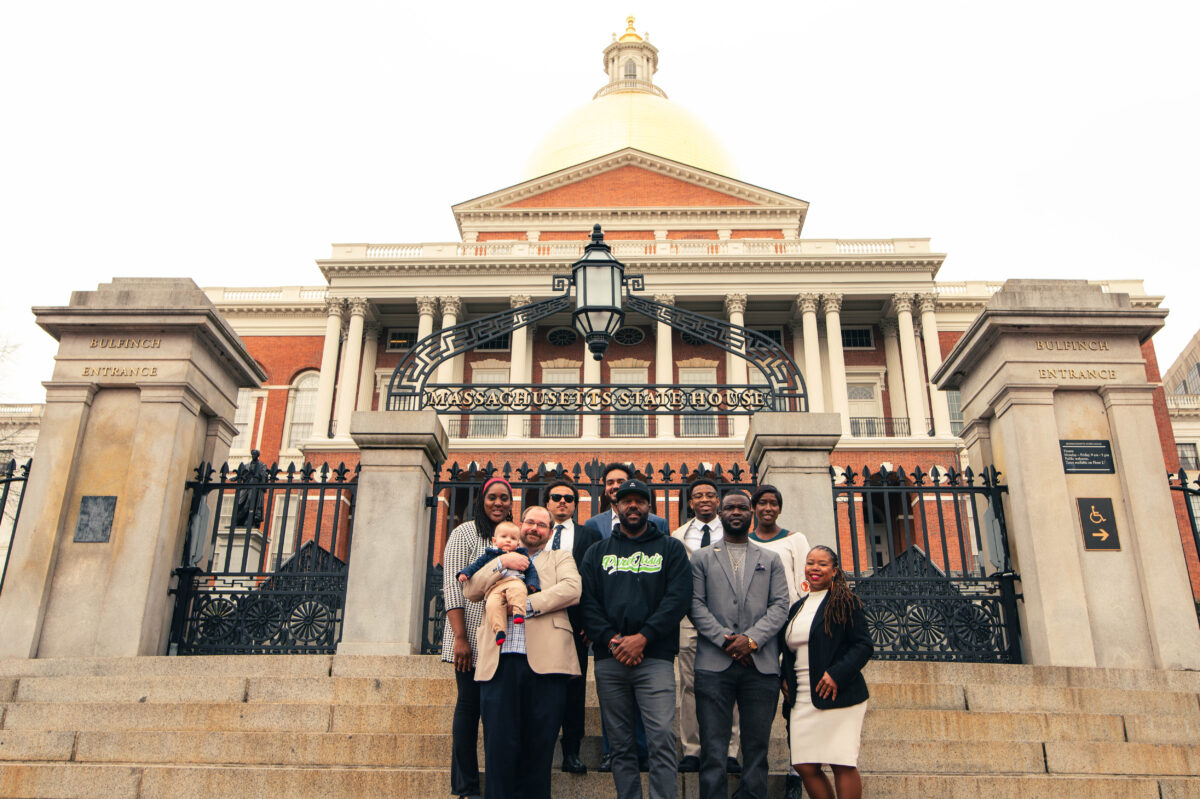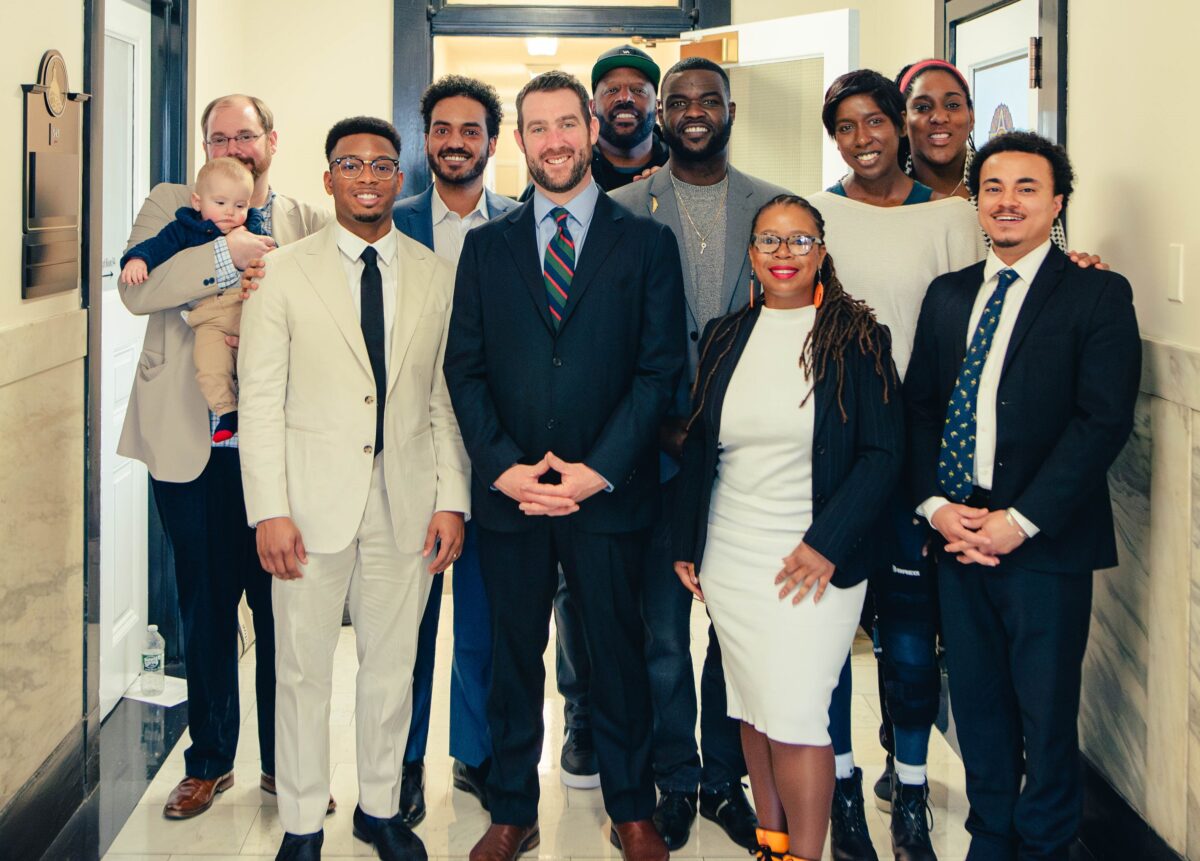ALERT: MSOs have filed EIGHT bills to take over even more of MA’s cannabis industry
Email your legislators now and tell them to stand up for competition and equity — and say NO to MSO market consolidation!
Advance Economic Equity
Protect Against Market Consolidation
Ownership limits prevent a small number of large multistate operators (MSOs) from dominating the market, ensuring opportunities remain for small and equity-focused businesses.
Vertically integrated MSOs are already driving a race to the bottom with wholesale and retail pricing.
Preserve Value of Equity Licenses
States like Arizona have shown that lifting ownership limits leads to a devaluation of equity licenses, often reducing their worth from millions to mere thousands.
- Of the 26 people who won the AZ cannabis equity license lottery, most sold… for much less than their value. At least four received as little as $35,000 for their licenses. (Arizona Republic)
- Among 13 Arizona dispensaries that have opened to date using a social equity license, just one of them is owned by an original licensee without support from a corporate dispensary. (Arizona Center for Investigative Reporting)
Encourage Local Investment
By limiting ownership, Massachusetts encourages local entrepreneurs and small business owners to thrive, fostering community wealth rather than concentrating profits in out-of-state corporations.
National cannabis license brokers confirm that MA’s market is attractive to out-of-state owners looking to expand.
Maintain a Level Playing Field
All current licensees and applicants entered this industry with the expectation that lawmakers wouldn’t make radical changes to laws that would drastically change business conditions – particularly changes that make it even harder for equity businesses.
Equity and general applicants have built business plans based on current ownership limits.
After years of struggling under overly strict regulations and systemic benefits favoring large, vertically integrated operators, businesses deserve an opportunity to take root and grow without changes that devalue their businesses and make it harder to raise capital from non-MSO investors.
Support Social Justice
Honor the Will of Question 4, Mass. Sess. Laws, ch. 55 (2017), & Mass. Sess. Laws, ch. 180 (2022)
Massachusetts’ cannabis ballot question & legislation intended to provide opportunities for communities disproportionately harmed by the War on Drugs. Ownership limits are a cornerstone of this commitment.
Enable the CCC to Deliver on Legislature’s Mandate
When Legislators rewrote Question 4 in 2017, they required the CCC to promote and encourage full participation in the regulated cannabis industry by people from communities that have previously been disproportionately harmed by marijuana prohibition and enforcement and to positively impact those communities.
Mass. law preventing the concentration of licenses is a critical policy for advancing the Legislature’s mandate.
Protect Vulnerable Communities
Lifting the cap would create an uneven playing field, allowing wealthier MSOs to undercut minority-owned and equity businesses, further marginalizing these groups.
Protect Market Stability
Prevent a Race to the Bottom
Enabling the largest, most profitable operators to expand their market share could lead to more extreme price wars that destabilize the market, driving small operators out of business.
Give Equity Businesses a Chance to Thrive
The social equity fund is just starting robust grants, delivery is just becoming profitable, & social consumption is imminent. Businesses need stability and predictability for these opportunities to blossom.
Encourage Diverse Product Offerings
A competitive, decentralized market fosters innovation and diverse product options for consumers.
Ensure Long-Term Market Health
Maintaining limits prevents market consolidation that could lead to monopolistic practices and reduced consumer choice.
They’ll Keep Coming Back For More
MSOs gave away they game by coming out asking to triple their market share from 3 stores to 9 in their very first proposal last year.
Now they have eight bills with a range of options for undermining competition, including:
- full control of 9 licenses
- full control of 6 licenses plus 35% control of 4 more licenses
- full control of 6 licenses
- 35% control of 4 more licenses
No matter how much market share they get, it will never be enough.
They will keep coming back for more unless legislators send a clear message that they support competition and equity.
Inspire Economic Development
Foster Job Creation
A diverse market supports a greater number of small businesses, which collectively create more local jobs than a consolidated market dominated by a few large players.
Attract New Investors & Entrepreneurs
Ownership limits make Massachusetts an appealing state for new out-of-state investors and cannabis entrepreneurs, promoting innovation and growth without jeopardizing competition.
Learn from Other States
Don’t follow Arizona’s lead
Removing ownership limits led to equity licenses being bought out cheaply by MSOs consolidating the market and undermining social equity goals.
- “Just four of the original 26 social equity lottery winners still have an equity stake in the lucrative licenses. Existing corporate dispensaries now own half the licenses outright, with private investors holding equity in 10 more.” (Arizona Center for Investigative Journalism)
- “Senate Bill 1262, introduced by Republican Sen. Sonny Borrelli, seeks to restore power to… people from marginalized communities… It would also allow the state Attorney General’s Office to investigate and punish entities that exploited those individuals.” (Marijuana Moment)
Avoid this Pattern of Negative Outcomes
States with lax ownership regulations often experience reduced investment in social equity programs and increased barriers for smaller operators.
Policy and Legislative Goals
Support for Equity-Focused Legislation
Policymakers should focus on measures like increasing the impact of the Cannabis Social Equity Trust Fund, improving technical assistance and prioritization, and reducing operational costs for small businesses rather than increasing MSO market share.
Ensure Fairness in the Legislative Process
Any significant changes, such as lifting the cap, deserve thorough hearings and stakeholder input rather than backroom deals or rushed amendments.
Encourage Consumer Protection
Stimulate Competitive Pricing
A diverse marketplace ensures fair pricing for consumers, whereas consolidation often leads to a lack of competition and higher costs.
Support Quality
Smaller, locally owned businesses often prioritize quality over mass production, benefiting consumers.
Don’t buy into misleading MSO propaganda
SPEAK OUT NOW
- SIGN ON TO OUR LETTER to Gov. Healey and Legislative Leaders urging them to reject ownership limit changes to show our collective solidarity.
- EMAIL YOUR LEGISLATORS directly right now using our easy online form to remind your state Representative and Senator what’s at stake and how important this issue is to you.
Related posts…
-
Don’t let corporate cannabis destroy equity in MA

Well-funded multistate operators (MSOs) and their lobbyists filed EIGHT bills to seize greater control of Massachusetts’ cannabis industry. But there’s good news: EON and our legislative champions have a bold legislative agenda to empower equity operators and strengthen the entire industry — without letting MSOs undermine fairness and competition.
-
Does the Cannabis Control Commission need legislative intervention? | State House News / NBC 10 Boston

Donahue asked several of the people and groups that were invited to testify Wednesday (the CCC was not invited to testify) whether they thought that the statutory structure of the CCC contributed to the issues they raised. He asked about how other state cannabis oversight agencies are structured and whether moving the CCC under an…
-
Public comments regarding license transferability in the City of Boston
After extensive outreach to the 17 social equity business owners of MCEC with provisional and/or final licenses, and dozens of other equity and general applicants and licensees, it is clear that this is an important, timely, and complex conversation.
-
The cannabis industry is fighting over how many stores one company can own. Here’s why. | The Boston Globe

A debate over the cap on weed permits has sparked worries about broken promises to entrepreneurs of color and fears of a marijuana monopoly










